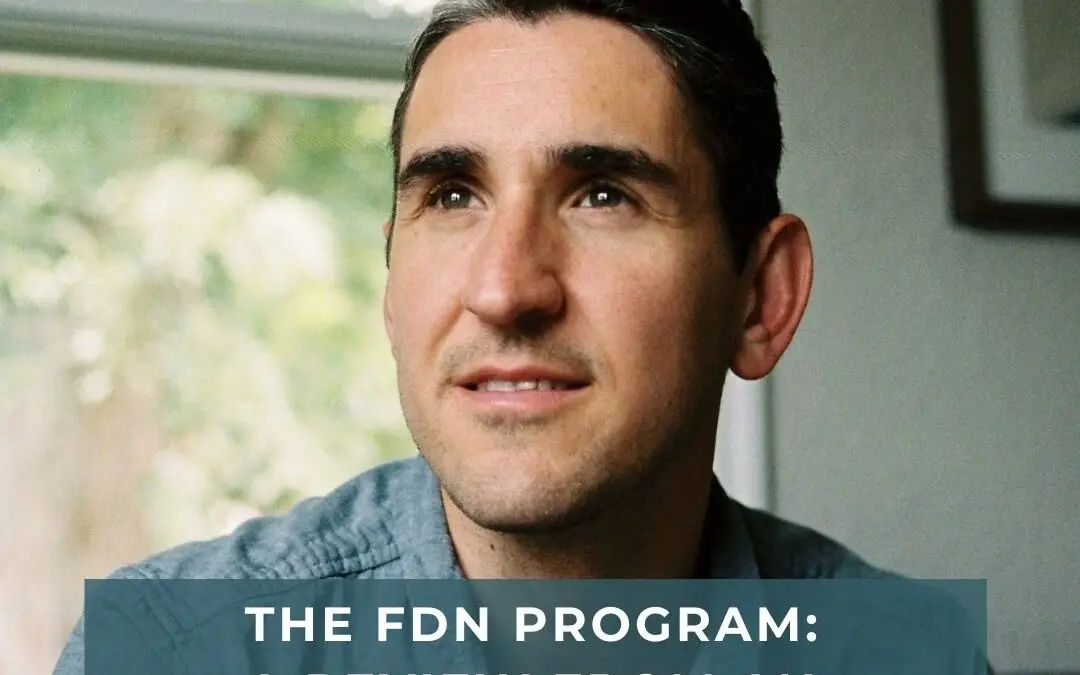
Is the FDN Program Worth It For Aspiring Health Practitioners?
by Ryan Monahan, FDN-P | Sep 17, 2024 | Articles | 8 comments
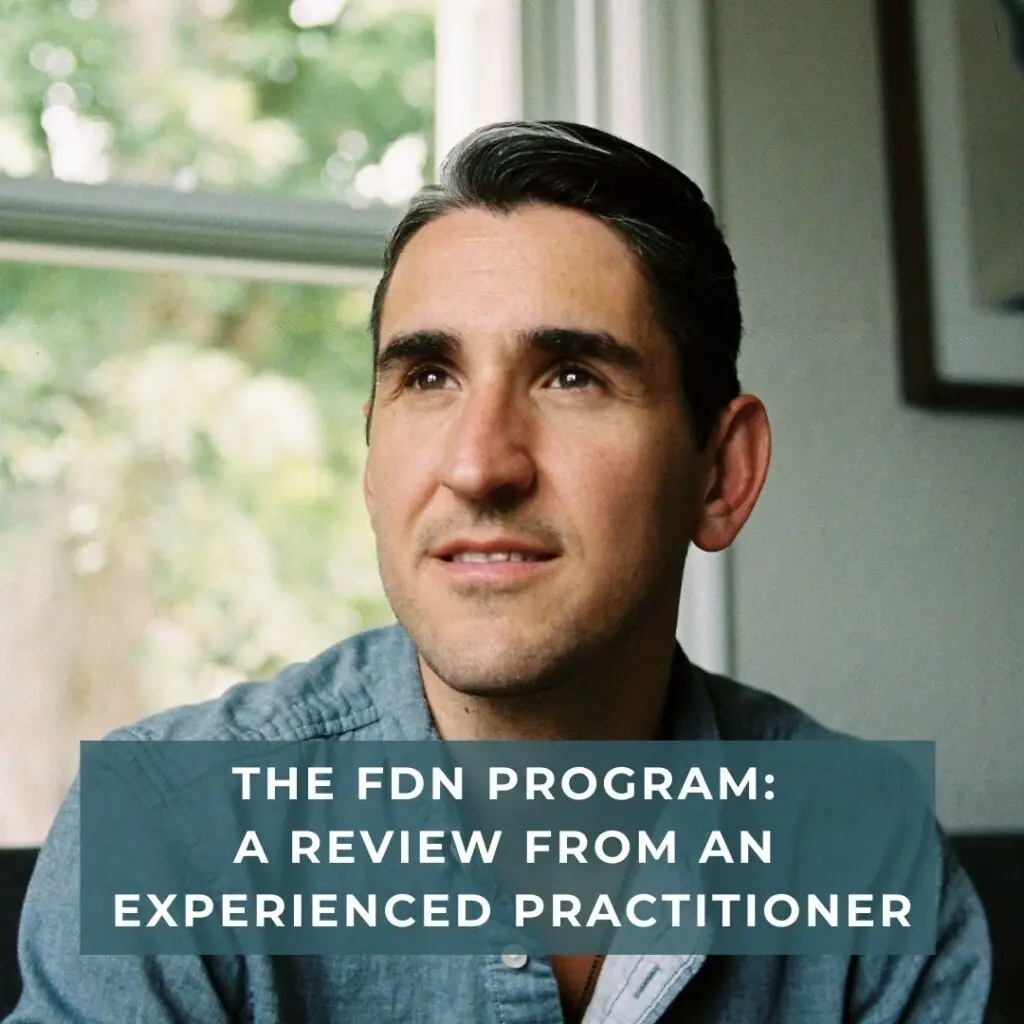
As a full-time practicing FDN practitioner that graduated from the program in January of 2016, I often get asked by aspiring practitioners, friends, and clients alike to describe my experience with the FDN program. In this article, I set out to ask the most commonly asked questions about FDN, and whether the program is worth it.
For those of you who would like a shortened review of the FDN program – my short answer is yes – the FDN course is absolutely worth it. Here’s a short list of why I’d recommend it:
- Self-paced online course
- Payment plan options
- Learn functional lab interpretation
- Run labs on yourself first and become and become your own first client
- Access to a menu of over 1,000 functional labs after graduation
- Ability to work remotely or from home
- Be your own boss
- Unlimited income potential (for those willing to put in the work!)
- Amazing post-grad community of FDN professionals
And here’s an Instagram video clip where I offer a short review of the FDN program.
Don’t need any more convincing? Jump to the end of this article for a special discount code for $1,000 off the FDN course!
What Is The FDN Program? A Brief Overview
Functional Diagnostic Nutrition (FDN) is a self-paced, online health coaching certification program that equips practitioners with the skills to identify and address the root causes of chronic health issues. The program is built on the philosophy of “test, don’t guess”, emphasizing the use of functional lab testing to uncover hidden stressors in the body.
FDN practitioners learn to interpret a variety of functional lab tests, including salivary hormone panels, digestive health assessments, and basic metabolic markers to assess various areas of function throughout the body. This knowledge allows FDNs to create personalized health protocols that go beyond symptom management, focusing instead on restoring overall health and wellness with the help of natural healing principles.
The program is designed for aspiring health practitioners, wellness enthusiasts, and those looking to transition into a career in functional health. It covers a wide range of topics, including:
- Functional lab interpretation
- Holistic health principles
- The D.R.E.S.S. protocol (Diet, Rest, Exercise, Stress Reduction, and Supplementation)
- Client coaching techniques
By completing the FDN program, graduates gain the ability to work as non-licensed health professionals, either independently or in collaboration with other health professionals, helping clients achieve optimal health through a root-cause approach.
The goal here is not to replace the client’s relationship with their doctor. Instead, FDNs serve as allied health professionals helping to guide clients through the murky waters of diet and lifestyle change. By bridging the gap between these two approaches, FDN practitioners can help clients achieve more comprehensive and personalized health outcomes.
(I would like to clarify here that I do think that conventional medicine excels when it comes to “acute” or emergency care, but largely falls flat when it comes to dealing with the growing epidemic of chronic symptoms – fatigue, brain fog, digestive complaints, hormone imbalances, allergies, muscle/joint pain, etc.)
What Is Covered in the FDN Training?
Now let’s get specific about what the FDN training actually covers!
The FDN course is structured into a series of detailed modules that guide you through core concepts in functional health, lab testing, and client management. Each module builds upon the last, equipping you with the knowledge and practical skills to not only interpret lab results but also apply holistic health practices to improve client outcomes. Below is a closer look at the key topics covered in each module to give you a comprehensive view of what to expect.
NOTE: these modules are subject to change over time, so I recommend also visiting the FDN site to download the most recent curriculum.
-
-
Module 1 – FDN Model & Philosophy
Explore the unique FDN perspective on health and wellness, highlighting how it contrasts with the traditional allopathic/medical approach. You’ll also be introduced to the concept of Metabolic Chaos™, as well as how to use functional lab tests to identify and resolve healing opportunities in the body.
-
-
-
Module 2 – Stress & Hormones (Part 1)
Learn the fundamentals of stress & hormones. In this module, you’ll learn about the HPA Axis and the significance of cortisol dysregulation (aka, the stress response). You will also be introduced to the salivary FDN Stress & Hormone Profile.
-
-
-
Module 3 – Stress & Hormones (Part 2)
Learn how to assess both male and female sex hormones (testosterone, progesterone, estrogen, etc.), as well as common symptoms associated with hormone imbalances (e.g., the relationship between estrogen dominance and symptoms like anxiety, PMS, acne, inflammation, etc.).
-
-
-
Module 4 – Metabolic Health
In this module, you’ll learn the importance of assessing liver function, digestion, and detoxification processes. You’ll also be introduced to the FLUIDS iQ Metabolic Wellness Profile and learn how to assess indican, total bile acids, and 8-OHdG biomarkers.
-
-
-
Module 5 – Digestive Health
You’ll learn about the physiology and significance of the mucosal barrier (the gut lining) and its role in digestive health. The module covers the FLUIDS iQ Mucosal Barrier Assessment and introduces the Genova Intestinal Permeability test, along with how to identify intestinal permeability (a.k.a. “leaky gut”)—a condition that can contribute to various symptoms throughout the body.
-
-
-
Module 6 – Antigens & Pathogens
Learn all about gut bugs and what happens when the GI environment starts to break down. You’ll discover how to use the GI-MAP stool pathogen test to identify various pathogens, including H. Pylori, bacteria, parasites, and fungi/yeast.
-
-
-
Module 7 – Food Sensitivities
Explore the ins-and-outs of the MRT (Mediator Release Test) and learn how inflammatory mediators are associated with food sensitivity reactions, which may contribute to hidden inflammation throughout the body.
-
-
-
Module 8 – Metabolic Typing®
Discover that there is no “one-size-fits-all” diet. This module teaches you how Metabolic Typing® can help determine the ideal diet for you and your clients. An introduction to the D.R.E.S.S. framework is also provided.
-
-
-
Module 9 – “D” for Diet in D.R.E.S.S for Health Success© Program
This lesson dives deep into the “D” in the FDN D.R.E.S.S. program, which is the first step toward helping your clients restore balance and optimal function. Diet is the foundation and cornerstone for healing the body!
-
-
-
Module 10 – FDN Model & Philosophy
Explore the importance of rest/sleep hygiene as it relates to the overall D.R.E.S.S. framework. You’ll learn about the various cycles that occur within the body during sleep and how to educate your clients on proper sleep hygiene.
-
-
-
Module 11 – Exercise Considerations
Learn to dial in the right level of intensity & frequency of exercise for your clients (for example, too much exercise can lead to oxidative stress and accelerated aging). You’ll customize exercise and movement practices on an individual basis.
-
-
-
Module 12 – Stress Reduction Techniques
Understand the importance of stress reduction and the parasympathetic response to promote healing and repair. Stress encompasses various factors, including physiological stress—bugs, toxins, food sensitivities, etc.
-
-
-
Module 13 – Targeted Supplementation
Learn how to strategically use targeted supplementation based on real-world lab data. This module covers how and when to select the most effective supplements, as well as designing a 90-day protocol for your clients.
-
-
-
Module 14 – Case Studies & Prep
The remaining modules prepare you to graduate and become an FDN-P. Here, you’ll review real world examples and case studies to help reinforce what you’ve learned up until this point. You’ll also prepare for your personal “Results & Recommendation” session (this is where you review your lab results with your mentor)!
-
-
-
Module 15 – Client Onboarding & Intake
In this module, you’ll prepare for real-world application of FDN principles by learning onboarding procedures and intake processes. You’ll also learn about logistics and best practices to set your practice up for success (for example, how to structure your packages, how to determine pricing, etc.).
-
-
Module 16 – Final Exams
The final module includes both a written exam as well as a practical exercise to be performed with your FDN mentor—this gives you hands-on experience working through an entire “mock client” case. And don’t worry, your mentor wants you to succeed and will help you along the way with little reminders. Congrats – you’ve made it to the finish line!
My Journey Into the FDN Program
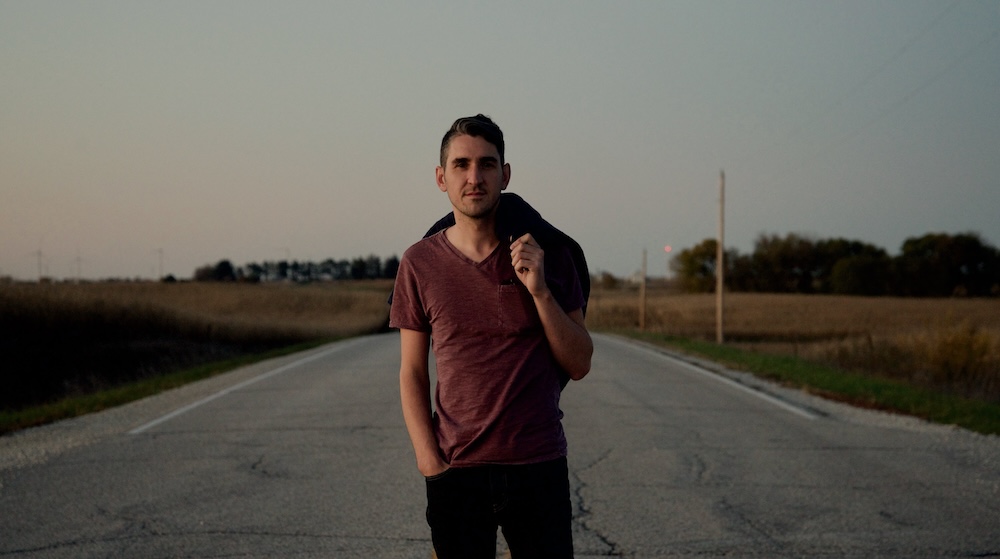
Some of you may already be familiar with my personal journey with chronic fatigue and eventual Hashimoto’s diagnosis, but for those of you who are not, feel free to read more about my personal journey with Hashimoto’s.
The shortened version of that story goes something like this: I spent well over a decade of my life struggling with a whole range of seemingly unexplained chronic symptoms, and had visited literally dozens of doctors during the time period to find answers.
While I had eventually been diagnosed with Hashimoto’s in 2012, by that time I had already become disenchanted by what the conventional medical model had to offer.
It had become pretty clear to me by the time I received my diagnosis that I was looking for a different approach. If you’re reading this article and considering the FDN program, you’ve likely had a similar experience yourself. You might also share the view that the conventional medical paradigm is to designed to “treat” (or as I like to say suppress) chronic symptoms with medications and or surgery.
Meanwhile, the underlying root causes driving those symptoms in the first place continue to bubble underneath the surface. And like so many people who fall in between the cracks of the medical system – you end up playing the game of “whack-a-mole” with your symptoms.
If you share my view, you know there is a better way.
Taking Action...
It was around 2014 that I started to take my growing obsession with holistic health more seriously by getting a certification under my belt. By that point I had already fully immersed myself into the work of leaders in the space like Sarah Ballantyne, Chris Kresser, Rob Wolf, Izabella Wentz, and others. The more I learned, the more I felt compelled to share everything that I was learning with others struggling in their own personal health journeys.
That same year that, I decided to book a trip to Austin, TX to attend the now defunct PaleoFx conference, with the primary objective of exploring different practitioner training programs. It was time to take my healing journey into my own hands…
While there, I ran into a handful of FDN veterans, including Reed Davis – the founder of FDN. After talking to Reed and his team, the FDN program immediately stuck out to me, and I ended up signing up just a month or so later.
Little did I understand at the time how dramatically this decision would affect my life in more ways than I could imagine…
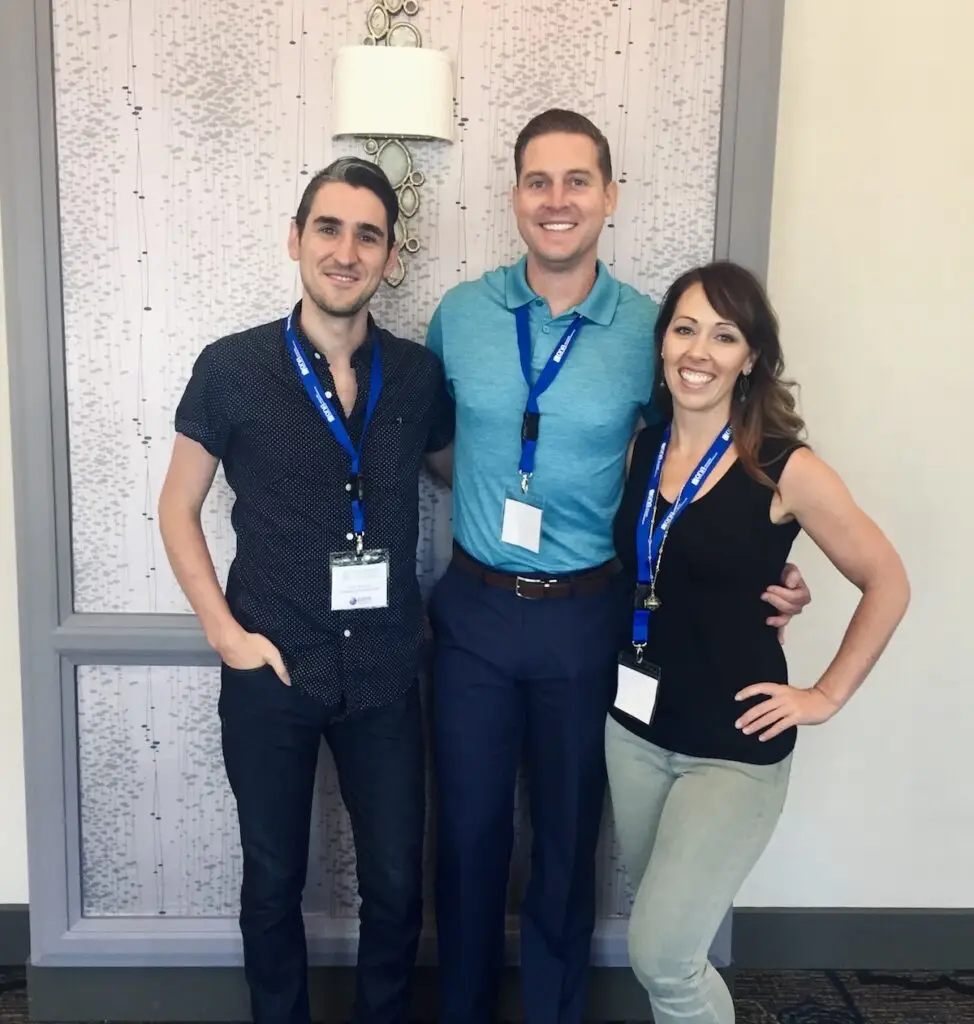
What Makes the FDN Program Different?
So what made the FDN program such a no-brainer investment for me?
Namely, the ability to run lab tests.
At the time I was exploring different programs, FDN was a clear winner in my mind as the program provided the both the ability to interpret functional labs, and to be able to order those labs as a graduate.
This was a clear advantage in my mind, as I would be able to offer so much more than nutritional advice alone. For example, by the time I had signed up for the FDN course, I already had my diet fairly well dialed in. I had eliminated inflammatory foods like gluten and dairy, and was embracing a more ancestral nutrient-dense dietary approach.
Yet, like so many individuals that I continue to see in my practice in the same boat, I was “hitting a wall” with my symptoms. Intuitively, I knew there was so much more to the picture than what could be accomplished with nutrition alone!
What really stood out to be was the core FDN “test don’t guess” philosophy. The way that I often explain it is this – the majority of people I see have already been trying to self-heal for years, or have already worked with a handful of doctors only to find themselves having wasted years of money, effort, and energy. What these individuals are missing is a roadmap to healing. After all, how are you going to get to your destination without a map?
Test Don't Guess
Not only does lab testing help our clients to put a stop to the endless cycle of trial-and-error, but also helps that individual identify and understand the set of root causes that are contributing to their chronic health health problems.
Some root causes that the foundational labs taught in the FDN course might help us to uncover:
- Hormone imbalances
- HPA Axis dysregulation
- Gut dysfunction / pathogens
- Leaky gut
- Food sensitivities
- Toxin exposure
- Liver dysfunction
- Oxidative stress
Once these “hidden stressors” are identified, then we can help the client by developing a 90-day healing plan (in some more complex cases, the healing journey may be longer). This plan involves a combination of removing inferences to healing, while also supporting the body with the help of time-tested healing foundations (diet, rest, exercise, stress reduction, and supplementation, aka, D.R.E.S.S.).
As a matter of principle, I do want to clarify here something important: FDN-Ps are not using lab testing to diagnosis or treat any disease – but rather to identify opportunities for healing. As you’ll see, this simple idea is much more profound than just being a mere semantic exercise…
Getting to the Root Cause
FDN practitioners believe at their core that symptoms are not the problem, but rather, the result of the problem. Therefore, to even have the power to diagnose just means that you end up naming the symptoms without understanding what led to that symptom or condition to begin with.
In many ways, even though it may seem counterintuitive, the symptoms don’t matter. Symptoms are merely a downstream manifestation of deeper-seated problems in the body.
So not only is it out of the scope of practice for FDN to “diagnose” or “treat” disease, we really have no interest in playing that game!
Part of the goal of the FDN is to act like a mentor and educator – to help guide the client into this new way of understanding. That is, not to get overly focused on the symptoms, labels, or diagnoses, but to think more like a root-cause analyst! At the same time our ultimate goal as a coach is to provide the client with a set of self-healing tools that they can use to restore optimal function, and ideally, to remain healthy for a lifetime.
Other Useful Links:
- A Behind The Scenes Look at The FDN Functional Health Course
- Try the FDN Course for Free (gives you access to the first module of the course)
How Long Does it Take to Complete the FDN Program?
The course is evergreen and self-paced, which means that once you enroll in the program, you’ll have up to a full year to complete the course on your own timeline – super convenient, as many (if not most) of those taking the program have families, and are working either part-time or full-time.
I took about nine months to complete, but really took my time to sink my teeth into the material – often watching many of the modules two times over! At the time I was taking the course, I had hour-long commutes into Atlanta, and would download the modules as audio files to listen to in the car. Essentially, I always had FDN in my ear during every free moment I could get!
Now, if for some reason that some unforeseen circumstance comes up that prevents you from finishing the course in the allotted year – FDN does offer an extension on the course for an additional fee. But the good news is that I’ve rarely seen anyone need to exercise that option.
Will the FDN Program Teach Me Everything I Need to Know?
The honest answer here is…of course not! No one course can possibly teach you everything that you need to know. But here’s the thing – the same would be true for any other course out there on the topics of functional medicine, nutrition, diet and lifestyle approaches to healing, etc.
So how should we view the FDN course?
My advice to anyone that is in this for the long-haul would be develop the growth mindset of being a life-long learner. As I mentioned above, I’ve been an FDN practitioner going on nine years, and I’m still constantly learning and advancing my knowledge – whether that’s reading books, listening to podcasts, attending conferences, or diving into research on PubMed. Once you start to embark on this journey, you start to find the the opportunities for continued growth are endless – and that’s one my favorite parts about what I do!!
The beauty about being a functional health practitioner is that each and every clinical pearl or new tool that you pick up along the way can ultimately be used in service of helping to better serve your clients!
All of the above being said, FDN is an incredible foundations program to set you up for long-term success by teaching you giving you a framework for understanding – a lens through which to view this paradigm that we call the functional approach to healing. The solid foundations taught in the FDN program underpin everything I’ve learned and built upon over the years. For these reasons, I can’t think of a better program to start someone along their journey to building their functional practice.
FDN Advanced Courses
Being a generally curious person with a thirst for knowledge, one thing I immediately took advantage of after graduating from FDN back in January of 2016 was to start advancing my knowledge by taking FDN Advanced courses (note: you technically don’t have to finish the FDN foundations course to start taking these “add-on” courses, but I do often recommend getting through the foundations first so that you’re not overwhelming yourself with too much learning all at once).
FDN Advanced Courses that I have taken over the years have included:
- Functional Blood Chemistry Analysis
- Thyroid Function
- Organic Acids
- Stress & Hormones (this is in my opinion, the most comprehensive course on the DUTCH test out there)
- SIBO
- Oxalates
- Blood Sugar Management
- Guide to Mitochondria
- Coaching Skills & Teaching Emotional Wellness
- Foundations of Herbalism
So as not to overwhelm anyone – no, I did not take all of these advanced courses all at once! In fact, what I often recommend to newer graduates is to only take one advanced course at a time until you feel like you’ve “mastered” that topic before moving on.
So for those of you eager to expand your knowledge and skills – there are ample opportunities to continue to learn and grow, long after you’ve completed the FDN foundations course.
I once heard a fellow FDN practitioner say that taking the Advanced courses is like getting your Masters or PhD in FDN, and that analogy always stuck with me!
Eventually I would go to on to complete nearly every single FDN Advanced course to become an FDN Level III. I would also later become board certified through the NBHWC (National Board of Health and Wellness Coaches) via FDN. Unfortunately, FDN is no longer offering either the Level III or NBHWC certification tracks, which means that I was one of the last and few to be eligible for these advanced offerings.
What About the FDN Community?
Speaking of community, the FDN graduate community – aka, the Association for FDN Professionals (AFDNP) – is top tier.
I remember after first graduating from the program, spending hours each week in the AFDNP Facebook group, learning from the amazing hive-mind of FDN graduates. Typically, a clinical question in the group will be met with a dozen or more insightful answers from a set of highly skilled practitioners with varied backgrounds.
Ultimately this means that as a graduate, the community will always have your back. You’ll never feel like you don’t have enough knowledge or skills when you’re getting started with your first set of clients, as you’ll always have that support to rely on.
In the beginning days of my practice, when I ran into a complex situation with a client, my response would be something along the lines of, “I don’t have the answer for your right now, but let me get back to you on that within 24-48 hours”. That would then give me the opportunity to tap into the AFDNP community.
For more complex lab results, that’s where I would take advantage of your Medical Director Program, also known as the MDP in FDN land!
The Medical Director Program
In my opinion, one of the absolute standout services offered to FDN graduates is the Medical Director Program.
It works something like this:
Once you graduate as an FDN, you’ll have access to order from a “menu” of hundreds of labs from reputable functional lab providers (for example, the HTMA from ARL, the GI-MAP from Diagnostic Solutions, the OAT from Mosaic, etc.).
In addition to the cost of the lab itself (which you’ll have the client pay for) the MDP fee is $75 per individual lab ($65 for AFDNP members) ordered through the program. In exchange for that fee, you’ll have access to schedule a 30-min lab review with one of the clinical advisors on staff – these are typically FDN veterans with years of experience under their belt.
So in addition to the aforementioned AFDNP community, you will also have access to invaluable 1:1 support, which is especially helpful for your first dozen clients or so. During the that call, your clinical advisor will help you to better understand the hidden patterns found on the lab, will provide deep insight into clinical correlations between the lab and the client’s symptoms, and will make suggestions for dietary/lifestyle interventions and/or supplement recommendations.
(NOTE: While FDN-Ps are non-licensed practitioners, the MDP program gives you the ability to purchase these labs through one of the many medical directors on staff, who essentially “sign-off” on the lab on your behalf behalf).
My Time as a Clinical Advisor
I served as an clinical advisor for the FDN Medical Director Program for three years (2020 – 2023) and loved it! During that time period, I got to know dozens if not hundreds of FDN-Ps, and had the honor of helping to guide them through their complex client cases.
Working as a “C.A.”, as they’re referred to the in the FDN world, was incredibly rewarding. Ultimately I parted ways with FDN to be able to focus more attention on growing and scaling my private practice, but I still remain active in the FDN community to this day.
Will I Become Successful After I Graduate?
This is easily the most common question that I get for those interested in the FDN course, and the honest answer here depends on:
- How you define success. Maybe you’re a work-from-home mom that’s just looking to put in some part-time work with clients to work 20 hours per week. Maybe you you’re interested in the FDN certification to learn how to heal yourself, and to help friends and family members along the way. Or on the other end of the spectrum, maybe you’re eventually looking to scale your business to a multiple six-figure income. All of these are valid definitions for success!
- How much time you’re willing to put into it. Success as a solopreneur is very much a work in equals work out scenario. The most successful FDNs that I know have systems and automation in place, post on social media every day (at least M-F), continue to advance their knowledge with advanced courses and certifications, regularly book themselves on podcasts (or maybe host a podcast themselves), and are generally “go givers” – that is rather than embracing the old adage of “always be selling”, these highly successful practitioners embody “always be serving” approach to their business.
Choose Your Own Adventure
Sound scary or intimidating? As I often tell my clients when it comes to the process of healing, “little by little, a little becomes a lot”. Rather than comparing your chapter 1 to someone else’s chapter 9 or 10, focus on the small steps that you can take to start growing your business and attracting clients.
That might be as simple as choosing a name for your business, opening up an Instagram account, e-mailing three friends or co-workers to let them know about what you do!
If being a solopreneur doesn’t appeal to you, please know that being an FDN graduate can take many shapes and forms. Although the majority of FDN-Ps that I have interacted with over the years go on to start their own business, some may choose to focus on public speaking, hosting corporate lunch and learns, working as a health coach for a integrative health clinic / wellness center, or even working for reputable supplement companies in the functional medicine space.
Final Thoughts - Review of the FDN Program
As cheesy as this might sound to say, I owe my life to FDN and the FDN community.
Having become certified as an FDN practitioner has transformed my life in ways I never imagined. It has empowered me to build a thriving practice, to make a good living, and to make a profound difference in my clients’ lives in the process. I couldn’t ask for a better way to make a living.
But let it be known that none of my success came easy – it requires persistence, dedication to the craft, continuous learning, and a relentless commitment to helping others. That all being said, I’m grateful for the challenges that have shaped me and excited for the ongoing opportunities to expand my knowledge and impact in the years to come.
I sincerely hope that you found this post to be helpful! If you’re interested in learning more or asking follow-up question, feel free to e-mail me at: ryan [at] themindfulnutrivore.com or DM me at @themindfulnutrivore.
And if you’re feeling like the time is right to commit to your future as an FDN practitioner, head on over to enroll now in the FDN course!
Special Discount for the FDN Course
Oh, and if you’re interested in a $1,000 discount off of the course, either use the following link or click the image below to get access to a discount count that you’ll use at checkout!
Still have questions that weren’t answered in this article! Reach out to me at:
- E-mail me at: ryan [at] themindfulnutrivore.com
- DM me on Instagram at @themindfulnutrivore
- Download my free e-book Hashimoto’s Unlocked
Just a heads up! I do earn a small commission for you signing up through my link. I’m deeply grateful for your support, as it helps me continue creating valuable content and resources. That said, I want to emphasize that I would never promote a program that I don’t wholeheartedly believe in. I’m excited to share this opportunity with anyone who might benefit from it as much as I have.
Related Links:
Still Have Questions? Your FAQs Answered!
What Does an FDN Do?
As non-licensed health practitioners, FDN-Ps work very much like health consultants with the added benefit of being able to run functional labs.
Those labs help you to identify “hidden stressors” in the body (gut infections, oxidative stress, liver stress, hormone imbalances, etc.), which ultimately helps you to fine-tune your recommendations and guide protocols.
As mentioned in the body of this blog post, FDN-Ps do not diagnose or treat, but rather provide diet and lifestyle recommendations, as well as create and direct self-treatment protocols in order to help resolve physiological stressors in the body.
As the word “functional” implies, the ultimate goals of the FDN are to restore optimal function back to the body, remove interferences to healing, and to restore resilience and balance to all body systems.
The end result – ideally – is a permanent resolution of chronic symptoms for the client.
How Much Does the FDN Program Cost?
At the time of writing this post, the cost of the FDN Program is $8997.
As a reminder, you can use my discount code to get $1,000 off the FDN program!
As of recently (2024), FDN does offer both in-house and third party solutions for financing the course for up to 24 months (as low as $425/month). Of course these rates are subject to change based on your eligible interest rate.
As one might expect, the FDN does tend to increase prices around the beginning of each year. So do be aware that the price of the course is likely to increase over time!
Will I Have Access to the Course After I Graduate?
Yes! You’ll have access to the material indefinitely at no additional cost beyond what you originally paid for the course. Your access to the course will not expire after you graduate.
In fact, FDN will occasionally update or amend the course with new material, which means you’ll get access to any future updates as an FDN post-grad.
What Are My Credentials After I Graduate?
After you graduate, you’ll earn your FDN certificate and become a certified Functional Diagnostic Nutrition Practitioner.
It’s at this stage in your journey that you’ll be able to use the letters FDN-P after your name!
The advantage here is to be able to carry the weight of a professional designation which helps you to attract new clients into your practice.
These credentials are truly earned. By the time you graduate, you will have gone through over a dozen modules, will have run functional labs on yourself as a test client, and will have gone through several practical exams with your mentor (including a written final exam).
How Do I Get My First Client?
Here are some effective strategies to consider:
- Start with Your Network: Start by reaching out to who you know – friends, family, co-workers, etc. Share your new services and ask if they know anyone who might benefit from your expertise.
- Offer Free Consultations: Providing a complimentary session (I typically recommend no more than 30 minutes) allows potential clients to experience your coaching style and understand the value you offer without any commitment. Remember – this is also a way for you to interview new clients to make sure they’d be a good fit for your program.
- Utilize Social Media: Hopefully this goes without saying – but share valuable content related to health and wellness on platforms like Instagram and Facebook. Engage with your audience by answering questions and providing insights.
- Be a Guest on Podcasts: This easily might be one my most recommended strategies for newer FDN graduates looking to get their name out there! There are tons of podcasts eager to have guests like you to share their knowledge!
- Create Informative Content: Write blog posts, create videos, or host webinars that address common health issues. This positions you as an expert in your field and draws potential clients to you.
- Network with Other Professionals: Connect with other health practitioners who may refer clients to you. Becoming the “go-to” person in a specific niche (say working with post-menopausal women anxiety and sleep challenges) means that you’re more likely to receive referrals for that specific health issue – just don’t forget to return the favor!
- Ask for Testimonials (aka “Social Proof”): If you have worked with clients in other health-related capacities, ask for testimonials that highlight your skills and approach. Social proof can be a powerful motivator to earn the trust of new clients. Remember to share these success stories far and wide on social media!
What’s the Difference Between a Functional Practitioner and a Health Coach?
Although these terms are often used interchangeably, they are, in fact, not the same.
Let’s set the record straight.
The easiest way to think of the difference between these two approaches lies in the difference between the definition of a consultant vs. a coach.
A functional health practitioner is more of a consultant. A consultant is there to direct and guide based on their years of training and expertise.
In this relationship, there is a clear distinction between practitioner and client, with the practitioner taking on the role of an expert guide. The client relies on the practitioner’s knowledge to identify the root causes of health issues, analyze lab results, and create customized health protocols.
By contrast, the role of a coach is not to provide any specific recommendations, but rather to help the client to identify and define their own goals and personal vision for success.
In this relationship, the coach plays a much more active role in listening, utilizing tools such as motivational interviewing to elicit positive responses from the client. In other words, in a coaching-client context, the client is behind the wheel of their own destiny rather than taking the directives of a practitioner.
So where does FDN fit into this picture?
While both skills are tremendously valuable, the FDN program is without a doubt a program to teach you how to be a health consultant.
That being said, if you’re more interested in the health coaching aspect of the business, I would highly recommend complementing your skills as an FDN with the training from the National Board of Health and Wellness Coaches (NBHWC).
Having both credentials under my belt, I personally love being able to “change hats” from consulting to health coaching mode when working with clients, as there is definitely a time and place for both skill sets. The ability to shift between guiding and empowering clients means that I’m able to meet their unique needs at every step of their journey.
How is Working with an FDN Different than Working with an MD, FMD, NP, etc.?
Many clients who end up working with an FDN have already “tried everything” and are looking for a different approach.
Most of the time, these people are highly motivated to end the cycle of trial-and-error after already having worked within the confines of the conventional medical system without success.
Earning a potential client’s trust often involves clearly explaining the value proposition of what we do as FDN practitioners.
For the vast majority of new clients, the FDN approach will be vastly different from what they’ve tried in the past.
The FDN approach is designed to remove interferences to healing and to help clients restore function in their body. This is fundamentally and philosophically very different than the allopathic approach of symptom treatment. The ultimate goal is to get your client to a point where they’re self-sufficient and don’t need you anymore!
(I’m thinking here of the Hippocrates quote, “The best form of medicine is to teach people how not to need it”).
One thing that goes underappreciated is the amount of time that FDN-Ps spend with their clients.
For example, with the way that I have my packages structured, I’m meeting with my clients bi-weekly over several months for an hour at a time. This can sometimes add up to more than 15 hours of face time with each other over a six month period.
The FDN approach is a slow and steady one. There is no fast-tracking your way to health. My goal in learning a client’s case over time is to understand the history and symptomology at such a deep level that no stone is left unturned.
How Do I Work with You Personally?
Glad you asked!
I would be honored to be your FDN-P and personal health coach along your health journey.
To anyone interested in transforming their health, I offer a FREE 20-minute qualifying consultation to discuss your health concerns and goals and see if we’re a good fit to work together. During this call, we’ll:
- Discuss your current health challenges
- Explore your health goals and vision for the future
- Outline how my services can benefit you
- Talk about how my approach is different than what you’ve experience in the past
- Answer any questions you may have about my packages and rates
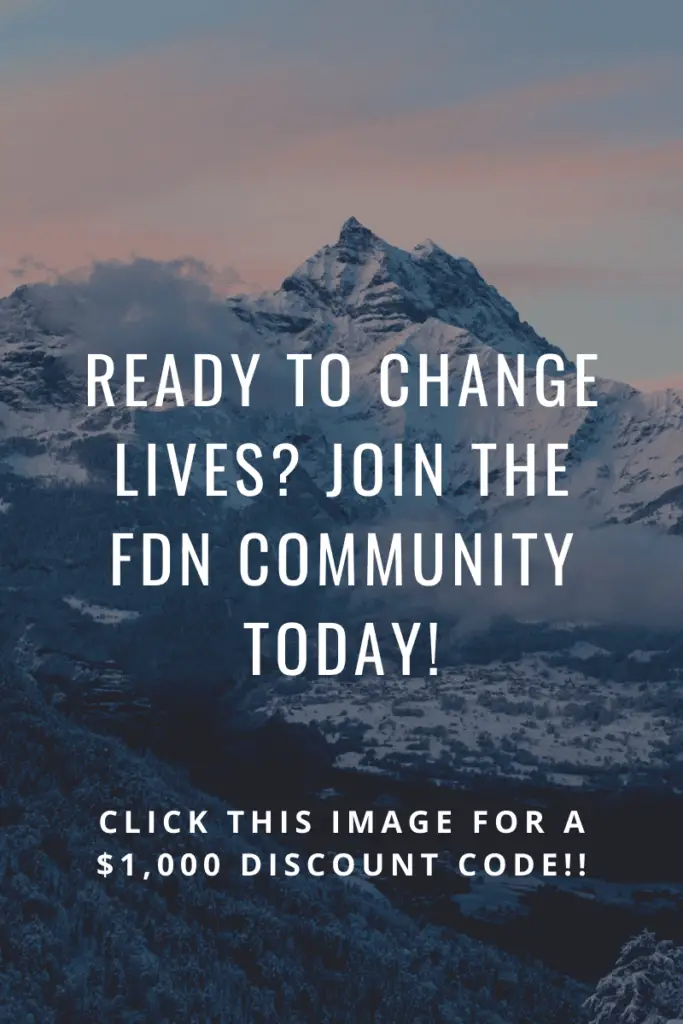


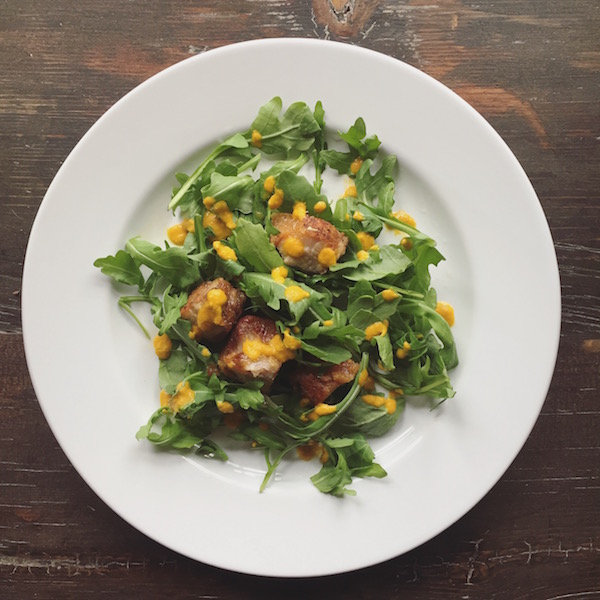

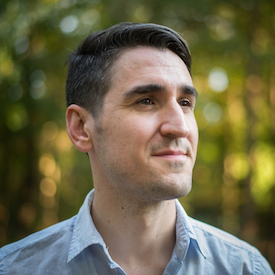
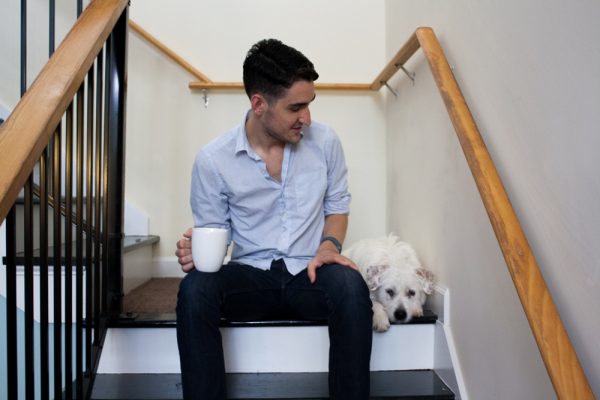
Recent Comments